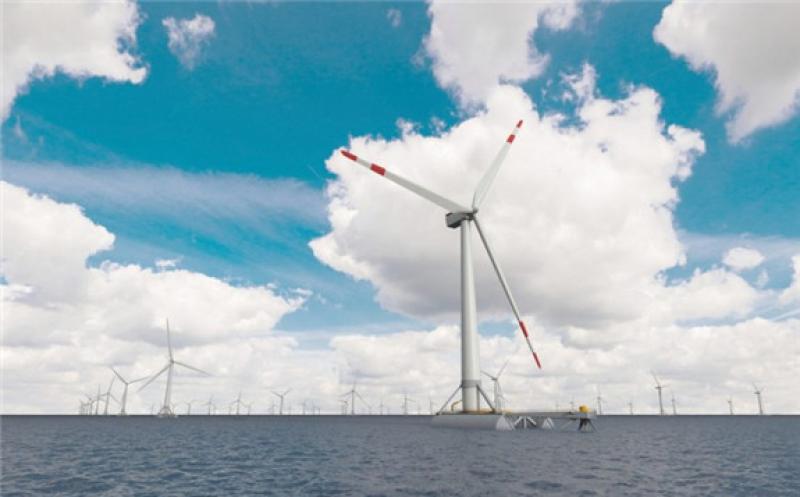In the framework of the equal partnership that involves the two companies, Falck Renewables and BlueFloat Energy are set to file, on behalf of the company Odra Energia, the documentation required to start the authorisation process for a floating offshore wind farm off the southern coast of the province of Lecce, Italy.

Similarly to the first project, Kailia Energia, off the coast of Brindisi, Italy, which was announced 30 September 2021, the project developers behind Odra Energia are about to begin a voluntary preliminary consultation process aimed at providing a better understanding of the scope of the environmental impact study that will be carried out.
A request for the maritime concession will also be filed with the Ministry of Infrastructure and the Port System Authority of the Southern Adriatic Sea.
The maximum installed capacity envisaged for the Odra Energia project is approximately 1.3 GW. The estimated annual production is approximately 4 TWh, equivalent to the consumption of more than 1 million Italian households and the avoidance of emissions into the atmosphere of more than 2 million t of carbon dioxide.
Floating offshore wind plays a key role in the energy transition process. The wind farms that deploy this technology will play a key role in achieving the national decarbonisation goals set for 2030, contributing significantly to the energy independence of the country, while protecting the environment.
Floating technology allows the positioning of wind turbines in deeper waters, such as those of the Mediterranean Sea, as well as the construction of wind farms without the use of piled foundations and further away from the shore compared to more traditional bottom-fixed offshore wind farms. Floating wind farms are more efficient as they harness the wind further from the coast where it is more abundant whilst also minimising the impact on the marine and onshore environments during all the phases of the project.
In addition to generating clean energy, the Odra Energia project proposes a collaborative and value-sharing approach with the communities in Puglia located near the proposed wind farm.
As for more traditional projects, and in line with what has been done for Kailia Energia, the project developers have already started a series of meetings with stakeholders in the Lecce area in order to establish a continuous relationship of openness and dialogue on the project proposal, so as to explain its specificities and convey its benefits:
Stable jobs in the medium- to long-term – During the manufacturing, assembly and construction phase of the wind farm, it is estimated that 1500 direct jobs will be created, a number that could grow to approximately 4000 during peak periods. After the wind farm comes into operation, it is estimated that more than 150 stable jobs will be created for maintenance activities, of which about 80% will come from local resources.
Local sourcing – The supply of goods and services for the construction and maintenance of the floating offshore wind farm will primarily involve local companies, with enhancement of the local workforce and expansion of skills related to energy sustainability.
Positive effects on the tertiary sector – Important opportunities for local businesses, during both construction and operation phases.
Port development – The project will rely on ports in the region, both for construction and maintenance activities, offering the possibility to diversify the nature of infrastructure and the quantity and quality of services offered in support of floating offshore wind, potentially also for other floating wind projects in the Mediterranean Sea.
Innovation, research, and development – An opportunity for universities and technological districts to come into contact with cutting-edge tools and technologies.